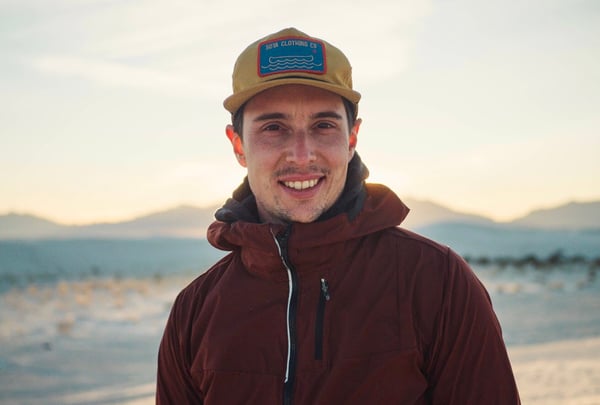
Growing up in the 1990s with a learning disability wasn’t something people talked about openly. Back then, kids like me were often pulled out of class for special help or given something called an Individualized Education Plan — an IEP. I didn’t understand what that meant at the time, but I knew it made me different. The label followed me through school, and so did the quiet embarrassment that came with it.
I was born with a rare physical condition called ocular motor apraxia, a neurological disorder that makes it difficult for my eyes to move smoothly or track objects. Something as simple as shifting my gaze from one side of the room to the other required turning my whole head. It might sound small, but as a kid, it made me stand out. Teachers noticed it. Classmates noticed it. And I noticed it most of all.
Every time I was called out of class or given a modified assignment, I felt the heat of eyes on me. It didn’t matter that the teachers were kind or that my parents said I was “just as smart as everyone else.” What I felt was that I wasn’t enough. I was different — and different, in the mind of a kid desperate to belong, was bad.
I can remember sitting in classrooms trying so hard to keep up. Words would blur together on the page, instructions would twist in my head, and I’d fall behind before I even started. I’d watch my friends breeze through reading or math while I was still trying to understand the first step. That constant sense of being behind planted the first seeds of shame — a shame that would grow roots deep into who I thought I was.
That shame became the lens I saw the world through. I craved validation, needing other people to tell me I was okay, that I belonged. I became a people-pleaser, doing whatever I could to hide my insecurities. I learned how to read a room before I could read a paragraph, how to adapt and mirror others so I didn’t stand out too much. These behaviors might sound small, but they became survival tools.
And while they kept me afloat in some ways, they also fed a deep, quiet fear. I was terrified — of people, of places, of things. I feared being found out as not good enough, not smart enough, not capable enough. So, I built a life around trying to prove otherwise.
Looking back, it’s clear to me that these same survival traits are closely tied to what later became my alcoholism. I believe I was born with a genetic predisposition toward it — that combination of biology, environment, and temperament that made alcohol feel like it filled some hole inside me. When I first drank, it was like flipping a switch. The fear, the shame, the constant self-doubt — it all quieted. For the first time, I didn’t feel different. I felt normal.
That illusion didn’t last, of course. But for a while, it gave me something I had chased my whole life: comfort in my own skin. What I didn’t realize was that the same brain that struggled to process information also processed emotions and impulses differently. My learning disability wasn’t just about reading or math — it affected how I understood myself and the world around me. The same intensity that made learning hard made feelings overwhelming. And when you feel everything too deeply, escape starts to look like relief.
By the time I was an adult, that relief had turned into dependence. I chased the feeling that alcohol gave me — that sense of belonging, of ease, of control — even as it slipped further away. I’d make promises to stop, then break them. I’d repeat the same behaviors, expecting different results, a cycle I now understand as the definition of insanity in the rooms of AA.
When I finally hit bottom and found Alcoholics Anonymous on January 12 of 2017, I started to understand that my story wasn’t just about drinking. It was about how I’d spent my whole life trying to fix something that was never broken — the way I learn, the way I process, the way I am.
In recovery, I began to see that my learning disability and my alcoholism weren’t separate struggles, but two parts of the same story. Both stemmed from the same deep need to feel okay in the world. Both were fueled by shame and fear. But both also gave me something unexpected: the chance to grow into who I really am.
Through working the steps, I learned that acceptance is the key. Acceptance of my past, my wiring, and my humanness. I began to see my differences not as liabilities but as assets. The same persistence that got me through years of feeling less than is the same persistence that helps me stay sober today. The same sensitivity that once made me fearful now allows me to connect deeply with others who struggle. And the same mind that learns differently also feels differently and more intuitively, more empathetically, more creatively.
It’s strange, but the things I once hated about myself have become the cornerstones of my identity. I’ve learned that there’s strength in being wired a little differently. My path through learning challenges gave me humility and resilience. My journey through alcoholism gave me honesty and hope. Together, they shaped a kind of wisdom that only comes from falling down and getting back up again — over and over, until standing feels natural.
When I share my story now, I sometimes think about that kid in the '90s — the one with the IEP, feeling out of place. I wish I could tell him that his difference isn’t a defect. That one day he’ll see it as a gift. That all those years of confusion and shame will turn into compassion for others who struggle silently.
Today, I don’t have to hide from the way my brain works. I don’t have to prove I belong. I’ve found a place — in the rooms of AA and in my own heart — where being different means being real. And that’s something I never thought I’d say.
Learning to accept myself, both as someone who learns differently and as someone in recovery, has been the greatest education I could ask for. It’s taught me that growth doesn’t come from fitting in — it comes from showing up as who you are, flaws and all.
So, if you’ve ever felt less than because of the way you learn, think, or feel, I want you to know this: you’re not broken. You’re not behind. You’re just built differently — and that difference might just be your greatest strength.
Because for me, it was only by facing what made me different that I discovered what makes me whole.




